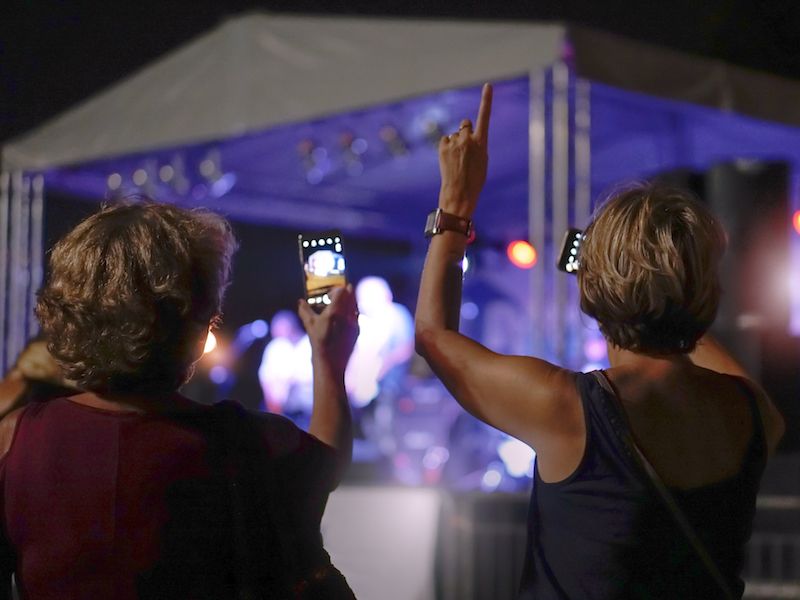
We’ve been getting excited about summer fun all year: going to the beach, chilling out by the swimming pool, and injured hearing? You might find yourself in environmental scenarios or exposed to other loud sounds this summer that are hidden hazards to your ears. Any noises over 80 decibels can result in harm to your ears, while lasting hearing loss can happen in swimming pools or other bodies of water. You have to take precautions and be conscious of your surroundings so that you can safeguard your hearing this summer season. Keep reading to discover the summer’s six hidden hazards to your hearing.
When You go to Concerts, Use Hearing Protection
Summer is concert time, but even if you’re in an outdoor venue, you still should protect your ears. Concerts can have volumes that are over 90 decibels, even at outside shows, which is inside of the danger zone of hearing loss. That’s why it’s always a good strategy to wear earplugs regardless of whether you’re going to a show outdoors or indoors. You can still hear the tunes with earplugs it’s just dampened slightly. If you’re taking young kids to a performance, consider getting them a heavy duty set of earmuffs since their ears are much more delicate than those of adults.
Your Ears Can be Damaged by Fireworks
Honestly, there are a lot of reasons to avoid fireworks in the summer. We’re not talking about the expert 4th of July fireworks show, we mean the backyard fireworks that lead to hundreds of incidents throughout the summertime. As well as causing hand traumas, loss of vision, and house fires, personal fireworks can also result in serious harm to your ears since they’re known to reach decibel levels of 155. This 4th of July, leave the fireworks to the professionals and enjoy the display from a protected and sound distance.
Loss of Hearing Can be Brought About by Lawnmowers
If you care about your yard, mower, edger, and trimer are your best friends. But that muffled feeling in your ears is an indication that your ears have taken damage. That’s because the lawn tools, which are constantly loud, impact your hearing over time. If you’ve ever seen lawn care pro’s, you most likely have noticed them wearing hearing protection, next time you work on your yard with noisy power equipment, you need to take a hint from them and wear earmuffs or earplugs.
How to Protect Your Ears When You’re at Beaches And Pools
Millions of people suffer from swimmer’s ear each summer, which occurs when bacteria-laden water becomes trapped inside your ear canal. The bacteria then infects the ear, triggering swelling and painful earaches. These bacteria are normally found in lakes and rivers but sometimes also be found in pools and hot tubs if the water isn’t correctly managed. No irreversible injury should happen if you get your ears examined by a hearing expert. To counter swimmer’s ear, however, you will want to wear special swimming earplugs in the pool and get your pool water tested to make certain the chemical balance is safe.
Boats and Other Water Sports
If you love the water, the summer season is beach and boating time for you. But, jet ski and boat engines can be noisy,we’re talking over 100 decibels. Continuous exposure to that much noise for a period of around 15 minutes can bring about permanent hearing impairment. In this case also, putting on a pair of disposable foam earplugs is a smart idea.
Car Races Can Injure Your Ears
It doesn’t make a difference what type of auto racing you enjoy, stock cars, midgets, motorcycles, drag racing, Formula 1. All of them can present a huge challenge for your hearing if you go to many races this summer. It’s calculated that sound levels can go over 120 decibels at some races, which is definitely in the danger zone for hearing injury. Earplugs are your best bet at these races, whereas your kids should probably use the earmuffs we mentioned earlier. Otherwise, you might not be able to enjoy the sound of those engines in the future.
